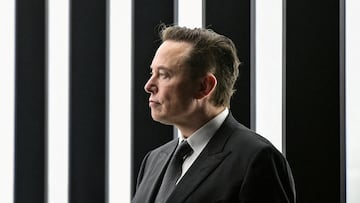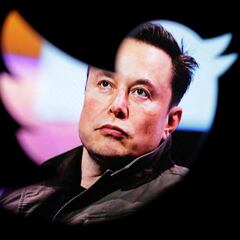Elon Musk’s BBC interview: Layoffs, hate speech, media tags and misinformation
Elon Musk sat down for a rare interview with the BBC where he discussed the changes made at Twitter and described the process as “painful” but necessary.

Elon Musk, the head of Twitter, Tesla and SpaceX, among others, sat down for an unexpected interview with the BBC’s James Clayton on Tuesday. The rare one-on-one with a mainstream news outlet was tense at times with Musk asking as many questions as Clayton. The conversation covered several topics but centered around the six months since he took control of Twitter. He described his time so far as such: “It’s been quite painful, but I think at the end the day it should have been done. I think were there many mistakes made along the way? Of course, but all’s well that ends well.”
Musk’s acquisition of the social media platform has been controversial and sparked many controversies since even before the moment he walked through Twitter’s front doors carrying a sink. They include the on-and-off again of the acquisition, his axe swinging that has decimated staff numbers, the reported rise in hate speech and growing misinformation as well as how accounts are verified, most recently dealing with how media outlets are tagged, just to name a few. Here’s a look at what the billionaire said during the interview that was set up at the last minute and live streamed simultaneously over Twitter.
press@twitter.com now auto responds with 💩
— Elon Musk (@elonmusk) March 19, 2023
What Elon Musk said about layoffs at Twitter
Musk has joked that Twitter is “the world’s largest non-profit” something that he reiterated in Tuesday’s interview. When he acquired the social media platform its revenue was that same as its expenditures before accounting for servicing its debt. Add to that a major drop in revenue, which occurred after he took over that Musk said was " partly cyclic and partly political concerns or whatever,” and Twitter was $3 billion in the red.
With just $1 billion in the bank, he gave the company four months before it would go under. “So unless drastic action was taken immediately, this company was going to die. It would be owned by the banks,” said Musk.
Part of that “drastic action” was laying off thousands of employees from top to bottom. The company now has around 1,500 employees left out of the 7,800 or so prior to his take over according to Musk. That’s over 80 percent of the workforce that has been sacked.
“It’s like if the whole ship sinks then nobody’s got a job,” he said justifying the mass layoffs.
The Twitter mogul reacted to the news in a way that can only be described as truly, truly petty. https://t.co/gt5aWhPbcC
— HuffPost Ent (@HuffPostEnt) April 12, 2023
What Elon Musk said about hate speech on Twitter
One of the main criticisms of Musk’s management of the social media platform is how it is handling hate speech and misinformation. Since shortly after he took over there have been reports that it has exploded on Twitter as banned accounts have been reinstated, staff that were tasked with controlling it have been sacked and the self-described ‘free speech absolutist’ own stated desire to bring “free speech” back to the “Digital Town Square”.
Musk provided an overview of how the social media platform is performing since taking over at the Morgan Stanley TMT Conference earlier this month. He tried to demonstrate that the amount of hate speech was over 50 percent lower than when he began making changes. However, there are a number of studies that contradict that view.
When challenged on this matter during the interview, Musk asked his interviewer to name one example that he himself has seen. Clayton told the head of Twitter that he doesn’t use the For You feed because he doesn’t “particularly like it” and couldn’t give an example.
During the exchange that ensued, which eventually prompted Musk to call Clayton a liar, the owner of Twitter was asked about a recent study by the Institute for Strategic Dialogue. His response: “People will say all sorts of nonsense.” Their study found that antisemitic hate speech had more than doubled since Musk took control of Twitter and the numbers have held steady since.
"'Jump in, the water’s warm, it’s great,' Musk said to the BBC when asked if he had a message to reluctant brands. The problem is the network he seems intent on creating is one advertisers do not want." - @DaveLeeBBG https://t.co/aq0SnQpzot
— Tim O'Brien (@TimOBrien) April 12, 2023
What Elon Musk said about misinformation on Twitter
From hate speech the conversation transitioned into misinformation, and Musk was asked why the rules on covid misinformation have been changed. That led the interviewee to ask: “Has BBC changed the Covid misinformation?” Which turned into a back and forth but eventually Musk said “Covid is no longer an issue.”
What Elon Musk said about media tags on Twitter
Related stories
One of the ways Musk came up with to create new revenues on Twitter was to make all users have to pay for verification tags, including media outlets. So far many are refusing and New York Times was stripped of theirs. “I must confess to some delight in removing the verified badge from the New York Times. That was great. Anyway, they’re still alive and well, so they’re doing fine,” Musk quipped.
Earlier in the interview though, the two discussed the designation for the BBC and NPR being labeled “state-affiliated media” the label for the latter was then changed to “government-funded media.” NPR has decided not to post any new content on the site despite the change. As for the BBC, Musk said that the social media platform wants to be “as truthful and accurate as possible” and had the British broadcaster’s tag switched to “publicly funded” adding: “which I think is perhaps not too objectionable?”


